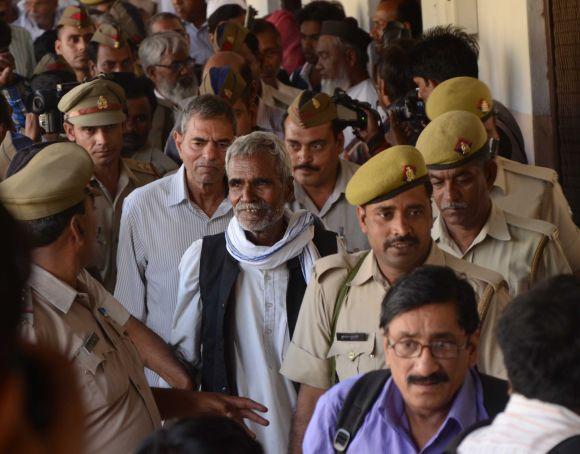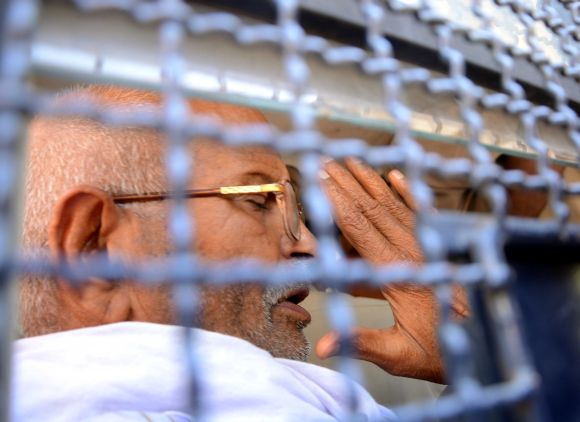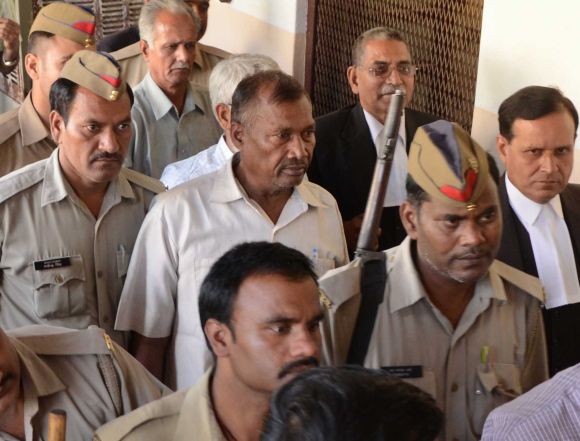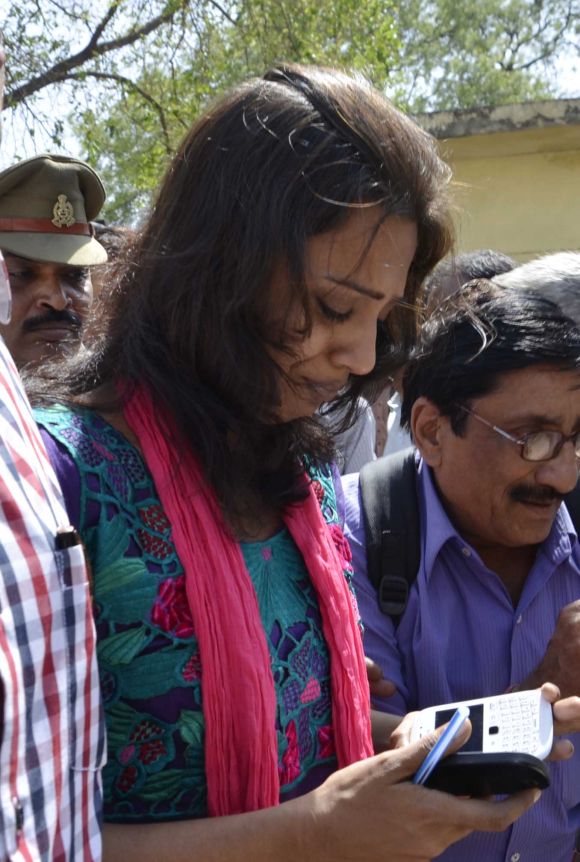
Set up by his own colleagues, Kinjal Singh's father, deputy superintendent of police K P Singh was killed in a fake encounter. Sharat Pradhan reports on the fight for justice.
It took 31 years for the Indian judicial system to punish the killers of Kinjal Singh -- the girl who lost her father when she was just two-and-a-half months old.
Kinjal, who has grown up to be an IAS officer, smiled as tears rolled down her face when the special CBI court pronounced the death sentence for three policemen convicted of killing her father.
The convicts had not only gunned down her father, K P Singh, then deputy superintendent of police, Gonda district in eastern Uttar Pradesh, but were also held guilty for the murder of 12 innocent villagers on March 12 , 1982, in Madhavpur village.
...

The events of that fateful night seem straight out of Bollywood movie. A few policemen conspired to get an honest police officer killed by sending him false information about movement of dacoits. K P Singh, the officer, rushed to the spot only to find himself cornered by his own colleagues who shoot him before gunning down a dozen villagers to give credence to their 'dacoit' story.
The trap was masterminded by Singh's own Station House Officer R B Saroj, against whom Singh had instituted a inquiry for corruption.
As many as 18 policemen joined hands with Saroj to concoct the dacoit encounter story. They testified that deputy superintendent of police K P Singh was killed by dacoits following which they retaliated and gunned down the bandits, who were in reality innocent villagers.
While the police department readily believed the cooked up story by the men in khakhi, the slain officer's widow, Vibha Singh, made a direct appeal to the Supreme Court. The plea did not go unheard, as the apex court ordered a Central Bureau of Investigation probe into the alleged 'fake encounter' following which the premier investigation agency registered a case in February 1984.
Five years later, in February 1989, the CBI charge sheeted 19 policemen, accusing them of carrying out a fake encounter.
...

By 2001, 10 of the accused died a natural death. The complainant, Vibha Singh, passed away three years later. She was suffering from a terminal illness.
In one of her depositions, Vibha Singh had accused the then district superintendent of police, who had managed to save his neck and had retired as a director general.
Investigations indicated that there was sufficient circumstantial evidence to pin down two station house officers T R Pal and R B Saroj.
The special CBI court was convinced about the charges and held, "all evidence shows ... R B Saroj killed the Dy S P, who was then just 25...The most glaring fact of this case was to shoot the Dy S P, which was followed by the massacre of 12 innocent persons in a planned manner."
The court added, "Fake encounters are nothing but cold-blooded brutal murders by persons who are supposed to uphold the law." Justifying the capital punishment awarded to the 19 cops, it said, "Moderate punishments can be considered for crimes committed by ordinary people, but if such a crime is committed by policemen, the severest punishment should be awarded... in cases where false encounter is proved against policemen, they must be given death sentence, treating it as the rarest of the rare instances."
Special court judge Rajendra Singh cited the widely known Nuremberg trial for war crimes in Germany. He said, "Even the Nazi soldiers charged of war crimes sought to take the plea that whatever they did was in execution of the orders they had received from above, but the plea was dismissed and all of them were hanged to death."
...

The verdict brought both smile and tears in the eyes of Kinjal, who had known her father only from the stories narrated to her by her mother. "I wish my mother was alive today; she would have really lived the moment."
She said, "All I can recall is that it was her grit and determination to fight that could take this case to its logical conclusion. She brought us up as a single parent, fighting against all kinds of odds."
"It gives me great pride that my father was an upright and honest officer, who would not bow down before any wrong. I will also live up to the ideals set by him," she added.
Kinjal, who is currently district magistrate of Bahraich, broke down several times. Her husband Abhay Singh -- also an IAS officer -- stood by her.
Family members of the other 12 victims of the infamous false encounter also looked satisfied with the court verdict, hoping that the order would not be reversed by higher courts. Most prominent among them was 46-year-old Jhabra, whose husband was gunned down in front of her eyes within 24 hours of her marriage.
"I was barely 15 at that time. A few policemen forced my husband out of the house. I peeped through a window and saw him being chased by the cops before being gunned down," she recalled.
Jhabra was one of the key eyewitnesses whose deposition will take the guilty to the gallows.
...